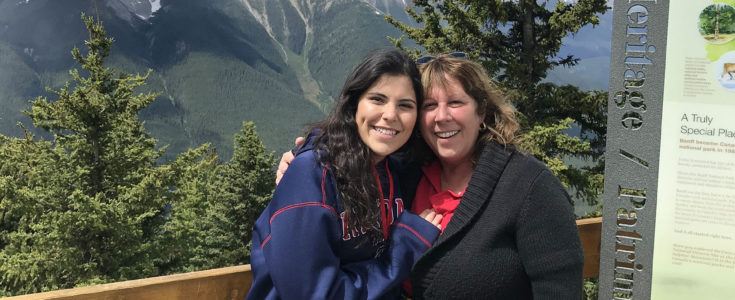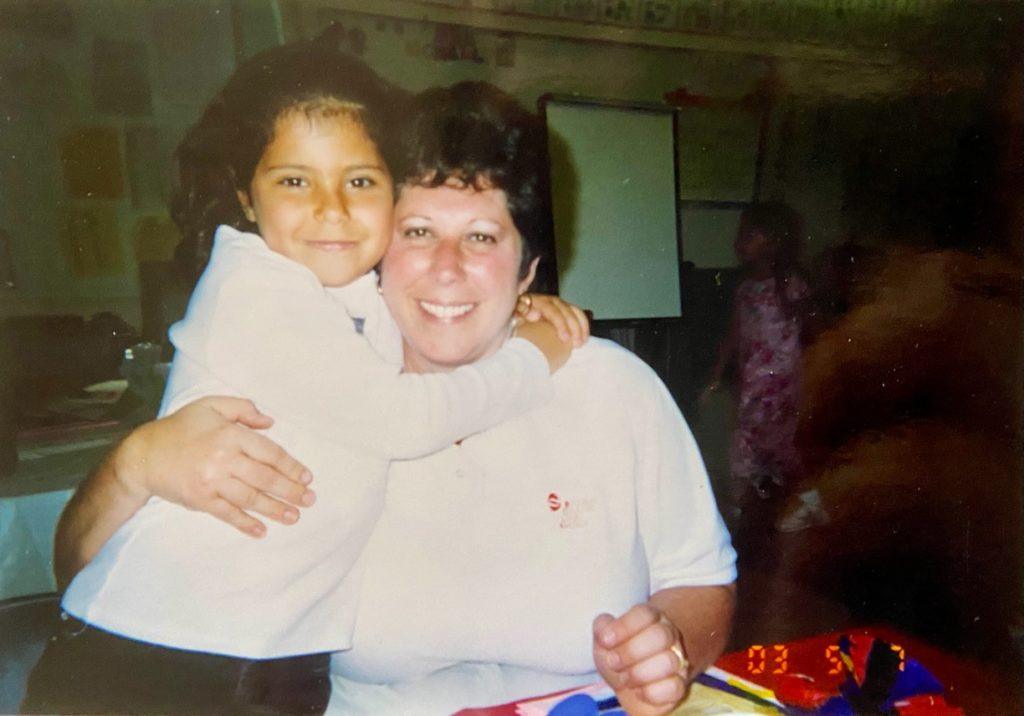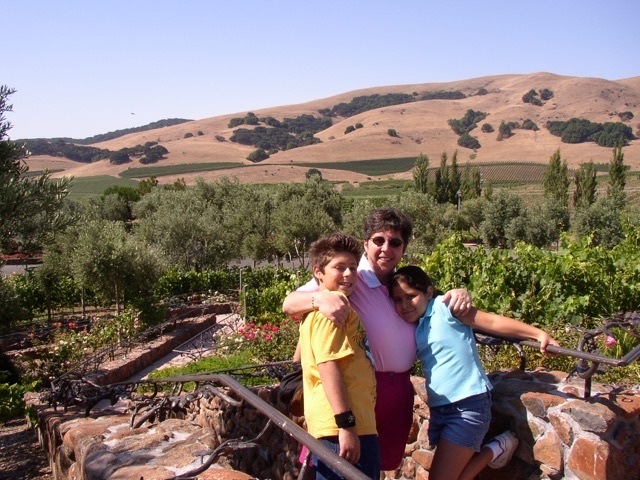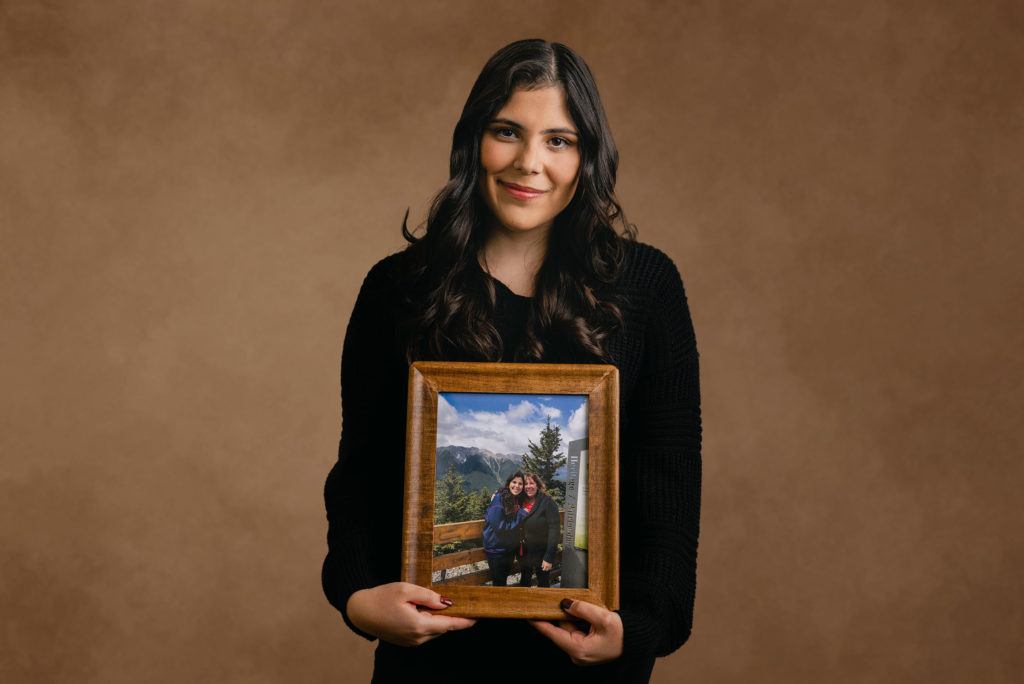
Ivy Blog
Parents With Glioblastoma: A Daughter Shares Story of Mother’s Diagnosis
- July 18, 2022
- Michelle Palacino
- Posted in Patient Stories

Crisis. Trauma. Horror.
These are just a few words that come to mind but hardly scratch the surface of what was to come. My life at that moment was reduced to an earth-shattering and devastating focal point.
“Mom has glioblastoma.”

You can try to tell people about all the feelings they think you’re supposed to feel, but the fact is the pain is just a flattening of emotions. We all deal with it differently, and I was shattered with devastation and anger. Constantly questioning what’s fair and why this sort of thing happens. I witnessed my brother completely implode in disbelief, unable to grasp the gravity of our mom being diagnosed with brain cancer. My dad was in shambles and fell apart both physically and emotionally, so broken that at one point, he had to be rushed to the emergency room by my brother while I tended to my mother. It was dizzying, yet I clearly understood our lives before the diagnosis were long gone. The worst possible diagnosis imaginable: terminal brain cancer, grade IV glioblastoma.
Life Before The Brain Tumor Diagnosis
After graduating from college in 2019, I got a job working as a marketing specialist for the Ivy Brain Tumor Center at Barrow Neurological Institute. In my role at the Ivy Center, I work closely with the entire staff of clinicians and researchers, all the way up to Dr. Nader Sanai, director of the Ivy Center and chief neurosurgical oncologist at Barrow. Over the past three years, my work life has revolved around glioblastoma and other aggressive brain cancers. I learned about the limited treatment options available and how the Ivy Center is working to change this through an innovative clinical trials program. I have listened to patients and their families tell their stories about navigating this diagnosis but never fully understood the magnitude of devastation they were experiencing. That was until last summer.
In July 2021, I was visiting my grandmother in Florida when I received a call from my dad that my mom had experienced a seizure. I booked the next flight back to Arizona through the holiday traffic and hurricane that had formed over the tropical coast. Upon arriving, I was told my mom was speaking nonsense. Her sense of reality was nonexistent. My dad helped her from the car in the parking lot of Barrow Neurological Institute, just two hours from their home in Tucson, and crumbled inside as my mom asked him what they were doing in Iceland. They were not in Iceland. She was suffering from status epilepticus, a state of continuous seizures.
The Emotional Journey Of A Parent Having Glioblastoma
The incredible team at Barrow rushed to identify what was causing her symptoms, which led to a biopsy revealing she had glioblastoma. Approximately 12,000 people in the US are diagnosed with glioblastoma each year. So, what are the chances that the focus of the Center where I work, this rare and devastating disease, is now afflicting my mom? Nothing I can write will adequately convey my incredulous sense of dismay and disbelief to hear that my mom was suffering from the very evil I’d signed up to combat three years ago. Here it was, knocking at the front door of my house, hitting me where I least expected it: My own family. My best friend. My mom.
On August 5, 2021, my mom underwent brain surgery. The pain I felt was excruciating, like time was standing still. However, the unwavering support of my coworkers and the confidence I had in my mom’s care team was the only thing getting me through this paralyzing time. By mid-morning, Dr. Sanai delivered the news that the surgery went well, and he was able to resect most of the tumor. I remember feeling deep gratitude, but at the same time, I was scared to find out how this would forever change my mom, the mom I knew before brain cancer.

I watched this powerful woman, a former US Naval Officer, electrical engineer, and loving mother of two, transform overnight. The woman who raised my brother and me to be the hard-working people we are today, who taught us not to be afraid, who told me not to cry when life got tough, to pick myself up, and keep going. I watched as my mom forgot my name. I watched her cry as she tried to make sense of what was happening to her. I felt helpless. I watched her ask the same questions over and over: Why am I in the hospital? Why am I here? Why is this happening to me? I told her it was brain cancer. I had previously spoken to her about glioblastoma when I would tell her about my work. But this was different.
My family watched my mom lose her sense of reality. Was it the medication? Was it the tumor? The seizures? Honestly, I didn’t care what it was, or what the doctors thought it might be; I just wanted it to stop. I wanted mom back.
Moving Forward Against All Odds
Crisis, trauma, horror, these words don’t even begin to adequately summarize our emotional frames. It’s been an arduous battle since her diagnosis. Through it all, mom’s been amazing. To say she’s my hero is an understatement. She’s determined to look forward, look to the next step, and remain focused on getting better.
Since returning home, my mom has continued to inspire me through good days and especially bad. She lives each day with purpose and will often say the important thing is to keep getting up and to keep going.
My mom’s determination to look this disease in its ugly face, the way it leered at us a little over a year ago, and let it know that “it has not won, it has not conquered” is something I’ll take with me for the rest of my life. She has persisted with her will to work hard and her unwavering strength. That’s my mom. That’s always been my mom, even before she got sick. My mom told us, showed us, and demonstrated how to pick ourselves back up and keep going.
She continues to show us this. And I love her for it. And I always will love her for it.
I love her for being my mom.
Click below to watch a video of Michelle’s story.
This story is for general health information only and is not meant to be used as medical advice, diagnosis or treatment. Please consult your physician or healthcare provider before beginning any treatment protocol or with any questions. This story reflects the health status of this particular patient at the time the story was written and photographs were taken. The patient’s condition may have changed over time.

